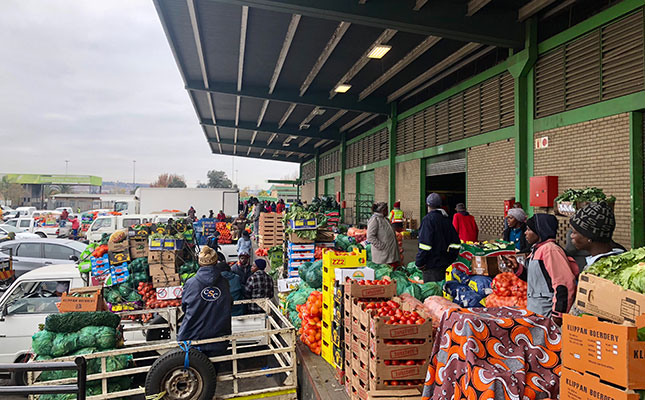
Photo: FW Archive
Here are a few of those lessons we can already take from the lockdown’s impact on agriculture:
The importance of the informal market
The lockdown and its restrictions on movement and trade has illuminated the critical role of the informal market in the local farming sector.
READ More than 1 500 complaints filed of food price gouging
Not only does the informal market represent a significant share of demand for fresh produce sold via the municipal fresh market system, informal trade plays an equally important role as a supplier to rural and lower-income customers.
Restrictions banning informal traders from operating had a devastating effect on the ability of millions of people to earn a living, and also cut off supply to those communities most vulnerable to suffering from food insecurity.
Farming really needs restaurants and tourism
Lockdowns around the world and here in South Africa brought a sudden and complete shutdown of the restaurant and hospitality trade. The impact of this on certain agricultural subsectors was almost immediate.
The demand for high-value products, such as premium cuts of meat and avocadoes, as well as more humble produce such as potatoes, saw a sudden and serious decline. Without restaurants adding slices of avocado to salads and side portions of chips, suppliers selling to the hospitality trade were left having to find alternative markets at the worst possible time.
PODCAST: Special Covid-19 Report – Fresh Produce
The risk of over-reliance on imported farm inputs
During times like these, when the rand becomes a victim of our ailing economy, the cost of imported inputs such as fertiliser, chemicals, agricultural machinery and animal feed can become prohibitively expensive for farmers, who never see the prices for their produce increase at the same rate as the cost of their inputs.
Each industry needs to diversify its consumer market
Diversification is a widely understood and applied concept in agriculture. Farmers know it is best not to rely on a single product or a single marketing channel. Even so, there is still a lot of concentration in terms of how products are marketed.
As a result, trade disruptions in export markets due to the pandemic have had serious repercussions for those industries with an over-reliance on a single marketing channel.












